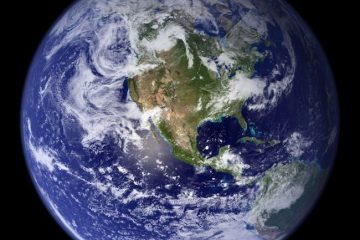In the vast realm of ecological theories lies the enigmatic Gaia Hypothesis, a concept that has sparked fascination and debate among scientists and nature enthusiasts alike. While the term “Gaia Hypothesis” is widely recognized, there are curious minds seeking another word, another angle to explore this captivating idea. Join us on a quest to delve deeper into this intriguing ecological theory under a different guise, unraveling the mysteries of our interconnected planet in a new light.
Table of Contents
- Exploring the Gaia Hypothesis: Unveiling Nature’s Interconnectedness
- A Deeper Dive into Gaia Theory: Gaia as a Living Entity
- Synonyms for Gaia Hypothesis: Alternative Terminology and Interpretations
- Practical Applications of Gaia Concept in Environmental Conservation
- Q&A
- To Conclude
Exploring the Gaia Hypothesis: Unveiling Nature’s Interconnectedness
The Gaia Hypothesis, also known as the theory of Earth as a self-regulating system, posits that the planet and all its living organisms are interconnected in a complex web of interactions.
This hypothesis suggests that Earth functions as a single, self-regulating system that maintains environmental conditions conducive to life. It highlights the interdependence of all living organisms and their physical surroundings, emphasizing the delicate balance that exists in nature.

A Deeper Dive into Gaia Theory: Gaia as a Living Entity
Exploring the intricate web of relationships within Gaia theory unveils a fascinating perspective on the interconnectedness of all living beings. At its core, Gaia theory posits that the Earth functions as a single living organism, with all its systems working in harmony to maintain balance and promote life. Embracing the concept of Gaia as a living entity invites us to rethink our relationship with the planet and consider how our actions impact the delicate equilibrium of this interconnected system.
<p>By viewing Gaia through the lens of a living entity, we can better appreciate the complexities of ecosystems and the profound ways in which each organism contributes to the overall health of the planet. This holistic approach challenges us to think beyond individual species and instead recognize the Earth as a dynamic, self-regulating entity capable of adapting to changes over time. Understanding Gaia as a living system underscores the importance of ecological preservation and sustainable practices to ensure the well-being of our shared home.</p>
Synonyms for Gaia Hypothesis: Alternative Terminology and Interpretations
One term that is often used interchangeably with the Gaia Hypothesis is “Earth System Science.” This term highlights the interconnectedness of Earth’s natural systems and how they function as a single, self-regulating entity. Within the realm of ecological studies, this term captures the essence of Gaia’s overarching concept of Earth as a living organism.
In addition to “Earth System Science,” another alternative terminology for the Gaia Hypothesis is “Living Earth Theory.” This term emphasizes the dynamic and evolving nature of Earth, portraying it as a complex, interconnected web of life forms and geological processes. By embracing the idea of a living planet, this terminology underscores the intrinsic link between Earth’s biotic and abiotic components, echoing the holistic approach central to the Gaia Hypothesis.
Practical Applications of Gaia Concept in Environmental Conservation
The Gaia concept is an intriguing theory that views the Earth as a self-regulating organism, with living organisms and their inorganic surroundings forming a complex system that maintains the conditions necessary for life to thrive. Applying this concept in environmental conservation can lead to innovative and holistic approaches that prioritize the well-being of the planet as a whole.
One practical application of the Gaia hypothesis in environmental conservation is the promotion of biodiversity. By recognizing the interconnectedness of all living beings and their environment, conservation efforts can focus on preserving ecosystems in their entirety, rather than individual species. This approach helps in maintaining the balance of the Earth’s systems and promotes resilience against environmental disturbances.
Q&A
**Q&A: Exploring the Gaia Hypothesis**
Q: What is another word for the Gaia Hypothesis?
A: The Gaia Hypothesis is also known as the Earth System Science or the Gaia Theory.
Q: What is the main concept behind the Gaia Hypothesis?
A: The Gaia Hypothesis proposes that the Earth functions as a self-regulating system to maintain conditions suitable for life.
Q: Who originated the Gaia Hypothesis?
A: The Gaia Hypothesis was developed by scientist James Lovelock and microbiologist Lynn Margulis in the 1970s.
Q: How does the Gaia Hypothesis relate to environmental sustainability?
A: The Gaia Hypothesis highlights the interconnectedness of all living organisms and their influence on the Earth’s environment, emphasizing the importance of maintaining a balance for sustainable living.
Q: Are there any criticisms of the Gaia Hypothesis?
A: While the Gaia Hypothesis has sparked intriguing discussions, it has also faced criticism for anthropomorphizing the Earth and lacking empirical evidence in some areas.
Q: How has the Gaia Hypothesis influenced modern environmental science?
A: The Gaia Hypothesis has influenced ecological thought by emphasizing the Earth as a complex, self-regulating system, shaping the way scientists approach environmental studies and conservation efforts.
To Conclude
As we delve deeper into the intricate web of the Gaia Hypothesis, we uncover a tapestry woven with threads of interconnectedness and harmony. Embracing the essence of symbiosis and balance, this captivating theory invites us to contemplate our relationship with the planet we call home. So, let us continue to explore this captivating concept, delving into its nuances and implications, as we journey towards a greater understanding of our place within the cosmic dance of life. Let the whispers of Gaia guide us towards a future where humanity and nature coexist in perfect harmony.



0 Comments